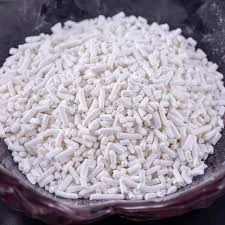
Exploring the Role of Thickening Agents in Food Products and Their Impact on Texture
Thickening Food Additives Enhancing Texture and Consistency
In the ever-evolving world of food science, thickening agents play a crucial role in enhancing texture and consistency in a variety of culinary applications
. From sauces and soups to dairy products and desserts, thickening food additives are essential for achieving the desired mouthfeel and stability. These additives can significantly improve the sensory experience of food, making them indispensable in both home kitchens and industrial food production.Thickening agents can be derived from natural or synthetic sources. Natural thickeners include starches, gums, and proteins, while synthetic options are often chemically modified to enhance their thickening properties. Common natural thickeners include cornstarch, guar gum, xanthan gum, and gelatin. Each of these additives has unique properties and functions that cater to specific food formulations.
Cornstarch is one of the most widely used thickening agents. It is derived from corn grain and is favored for its neutral flavor and ability to create a smooth texture when heated with liquid. When heated, cornstarch molecules swell and form a gel, providing desired thickness to sauces and soups. However, one drawback of cornstarch is that it can break down when cooked for prolonged periods, leading to a loss of thickening power.
Guar gum, derived from guar beans, is another popular thickener. It is known for its ability to hydrate and thicken at cold temperatures, making it an ideal choice for products that require thickening without heat. Guar gum also contributes to the shelf stability of food products, as it helps to prevent syneresis – the separation of liquid from a gel-like substance.
thickening food additive

Xanthan gum, produced through fermentation by the bacteria Xanthomonas campestris, is celebrated for its versatility. It can provide thickening, stabilizing, and emulsifying properties, making it particularly valuable in gluten-free products and dressings. Xanthan gum retains its thickness even under varying temperatures and pH levels, making it a favorite among food scientists.
Gelatin, a protein derived from animal collagen, is another common thickening agent used primarily in desserts such as jellies and mousses. It provides a unique textural experience, giving foods a creamy, rich mouthfeel. However, gelatin is not suitable for vegetarian and vegan diets, leading to the development of plant-based alternatives like agar-agar, derived from seaweed.
While thickening additives offer numerous benefits, their usage must align with dietary restrictions and preferences. Consumers are increasingly aware of ingredients in their food products, prompting many manufacturers to seek out cleaner label options without artificial additives.
In conclusion, thickening food additives are fundamental components of the food industry, providing texture, stability, and versatility across a myriad of products. As the demand for innovative food solutions continues to grow, the exploration of new and natural thickeners will likely play a significant role in shaping the future of food formulation, ensuring that culinary creations are both delightful and consistent.
-
Buy High-Quality Trichloroisocyanuric Acid for Sale | TCCA 90% SupplierNewsAug.30,2025
-
Pure Sodium Dichloroisocyanurate Dihydrate | Powerful DisinfectantNewsAug.29,2025
-
Industrial Chemicals: Quality & Purity for Every IndustryNewsAug.28,2025
-
Nitrile Rubber Honoring Strict Production StandardsNewsAug.22,2025
-
Aspartame Ingredients Honoring Food Safety ValuesNewsAug.22,2025
-
Fertilizer for Balanced Plant NutritionNewsAug.22,2025
-
Cyanide Gold Processing with High Purity AdditivesNewsAug.22,2025
Hebei Tenger Chemical Technology Co., Ltd. focuses on the chemical industry and is committed to the export service of chemical raw materials.
-

view more DiethanolisopropanolamineIn the ever-growing field of chemical solutions, diethanolisopropanolamine (DEIPA) stands out as a versatile and important compound. Due to its unique chemical structure and properties, DEIPA is of interest to various industries including construction, personal care, and agriculture. -

view more TriisopropanolamineTriisopropanolamine (TIPA) alkanol amine substance, is a kind of alcohol amine compound with amino and alcohol hydroxyl, and because of its molecules contains both amino and hydroxyl. -

view more Tetramethyl Thiuram DisulfideTetramethyl thiuram disulfide, also known as TMTD, is a white to light-yellow powder with a distinct sulfur-like odor. It is soluble in organic solvents such as benzene, acetone, and ethyl acetate, making it highly versatile for use in different formulations. TMTD is known for its excellent vulcanization acceleration properties, which makes it a key ingredient in the production of rubber products. Additionally, it acts as an effective fungicide and bactericide, making it valuable in agricultural applications. Its high purity and stability ensure consistent performance, making it a preferred choice for manufacturers across various industries.





